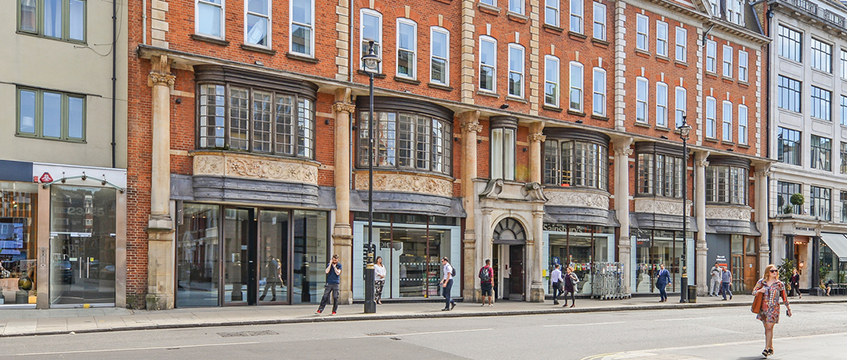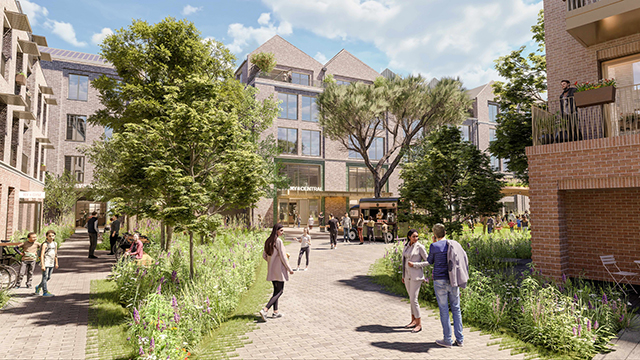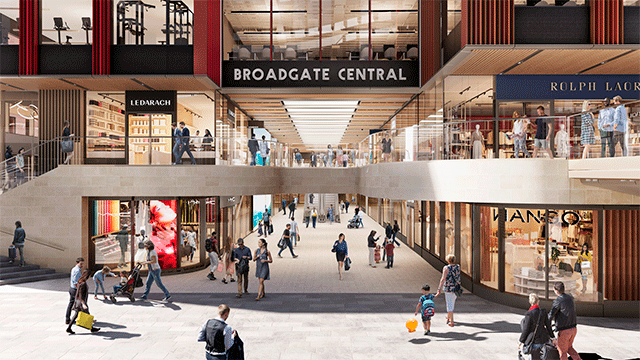According to research, Sunderland is the UK’s boom town for business start-ups. With plans for a major development on the 26-acre former Vaux Brewery site, is it finally about to step out of nearby Newcastle’s shadow?
The people of Newcastle and Sunderland never miss a chance to get one over on each other. They have a history of rivalry that extends beyond football, going back as far as the 17th-century English Civil War when Newcastle remained staunchly royalist while Sunderland sided with the roundheads.
At 53.1 sq miles, the Wearside city of Sunderland is 9.5 sq miles bigger than its Tyneside neighbour and, with a population of 282,000, has 22,000 more inhabitants. Yet despite these demographic advantages, Sunderland has long lived in Newcastle’s shadow. Most economic indicators show that it lags a long way behind.
According to the 2010 CACI retail footprint rankings, with an annual spend of £1.23bn, Newcastle upon Tyne is in ninth place in the UK. The Gateshead MetroCentre is ranked 30th, but Sunderland does not even make the top 50. Tyneside’s business community, with 6.7m sq ft of offices, is also much larger than that of Sunderland, which has 1.2m sq ft.
But despite all this, Sunderland’s fortunes could be about to change. In March, Sunderland council acquired the 26-acre former Vaux Brewery site from Tesco, using money from the Homes and Communities Agency and One North East.
It ends a 10-year row over the site, which was acquired by Tesco in 2001. The long-term plans are to develop more than 500,000 sq ft of offices to create a new business district.
Overlooking the River Wear at the northern edge of the city centre, the Vaux Brewery is widely regarded as one of the North East’s most significant regeneration sites. And while the purchase is seen as a step forward on the road to development, no one is ignoring the fact that there is little by way of public sector cash around and the economy is weak.
What happens next?
BNP Paribas Real Estate’s director of retail and leisure agency in the North East, Mike Birkett, says: “We suspect the council will need to appoint a partner through a public sector procurement process, which will be complex and take time.
“To get development started, a major preletting would be required, and it is unlikely to be a food store – the previous most likely suspect – given the issues surrounding the Tesco situation.”
Sunderland city council leader Paul Watson admits that “construction will not happen overnight and could be some time away”, but he is adamant that the site acquisition is “a significant step forward”.
The council has earmarked £6m for this year and next to support development of its economic masterplan, including regeneration sites such as the Vaux Brewery.
This money is likely to support works such as the removal of the remaining foundations and some grassing over to create a more attractive environment in the short term, while detailed planning continues for the longer term.
The council has also formed an economic leadership board to help drive trade in the city. Watson sits on the board along with senior private sector business leaders from the likes of Nissan, Sunderland Football Club, Land Securities, and the university.
The inaugural meeting was held a few weeks ago. Future meetings will be held at least every quarter.
The message to the forum is clear: the old local authority has gone and the public sector cannot afford to do what it once did.
It is now up to the private sector to step up to the plate, and the signs are encouraging.
Start-up boom town
With the largest increase in new businesses in the UK, Sunderland is the UK’s start-up boom town, according to research by Royal Mail. It was the fastest growing city in terms of businesses established in the last six months of 2010, adding 125 new companies, or just under 2% of the total business population.
It generates proportionately the same number of patents, trademarks and design rights as London, but with a quarter of the amount of investment in research and development.
Niall McGilp, regional director for the North East and Scotland for Goodman, which owns the Rainton Bridge Business Park on the outskirts of Sunderland, argues that in the North East, possibly more than in any other region, out-of-town markets are relatively stronger than in-town.
Major businesses have been attracted to the region to take up huge swathes of land on out-of-town business parks.
McGilp believes that the council should not be focusing solely on attracting major businesses as anchor tenants for the Vaux site but should instead concentrate on businesses in the 8,000 to 12,000 sq ft category – smaller companies, already established in the area, looking for expansion space.
“We see that as our best bet with Rainton Bridge, but that’s not to say bigger requirements never come along,” he says. “Sunderland is a city that has a lot of strengths. The council has robust ambitions and a strong view of where it wants to get to.
“The city has an economic development strategy and it is not just about attracting investment from the outside.”
Rainton Bridge: the UK Independent Medical Services has taken more than 13,000 sq ft of office space at the business park
Other major business activity in Sunderland
Following the 10-year hiatus on the former Vaux Brewery site, Tesco has agreed to develop a store on the nearby Sunderland Retail Park at Roker.
St Modwen and Persimmon Homes have submitted plans to the council for the £10m redevelopment of the 17-acre former Pyrex site – located off Pallion New Road – to build 212 family homes.
Meanwhile, UK Independent Medical Services has taken more than 13,000 sq ft of office space on a 10-year lease paying £13 per sq ft at Rainton Bridge Business Park near Houghton-le-Spring.
Bridging the gap
In January, Land Securities was granted planning consent for a £15m extension to The Bridges shopping centre in Sunderland – a three-storey 60,000 sq ft anchor store for budget retailer Primark. Work is scheduled to start in September.
The developer first became involved in retail in Sunderland in 1992 when it bought The Bridges. In 2000, it doubled the centre’s size to 515,000 sq ft and, as part of the extension, brought Debenhams to the city for the first time.
LandSec’s portfolio director for the North and Scotland, Chris Jennings, is very aware that Sunderland needs continued investment if it is to compete with Newcastle.
“A healthy rivalry is quite good,” he says. “It gives a competitive edge that sometimes you need. When people talk of shopping in the North East, they think of Newcastle or Gateshead, but retailers in Sunderland often find that their stores outperform their sister ones in Tyneside.
Jennings adds: “There is a very loyal catchment in Sunderland – 22m people come through The Bridges every year.”
In a flurry of other deals, names such as Bank, Pandora, Modelzone, Maplin and Disney have taken space at the centre, while existing retailers JD Sports and H Samuel have opened new stores. Lush, Rejuvenate and Poundworld are also set to join the mall, taking total recent lettings to just under 80,000 sq ft.
“Our investment in Primark will create something like 150 jobs,” says Jennings. “There is an opportunity to use the Vaux site to compete more effectively with Newcastle. It will help pump prime activity in the city. Now is the time for Sunderland’s public and private sectors together to grab the opportunity.”











